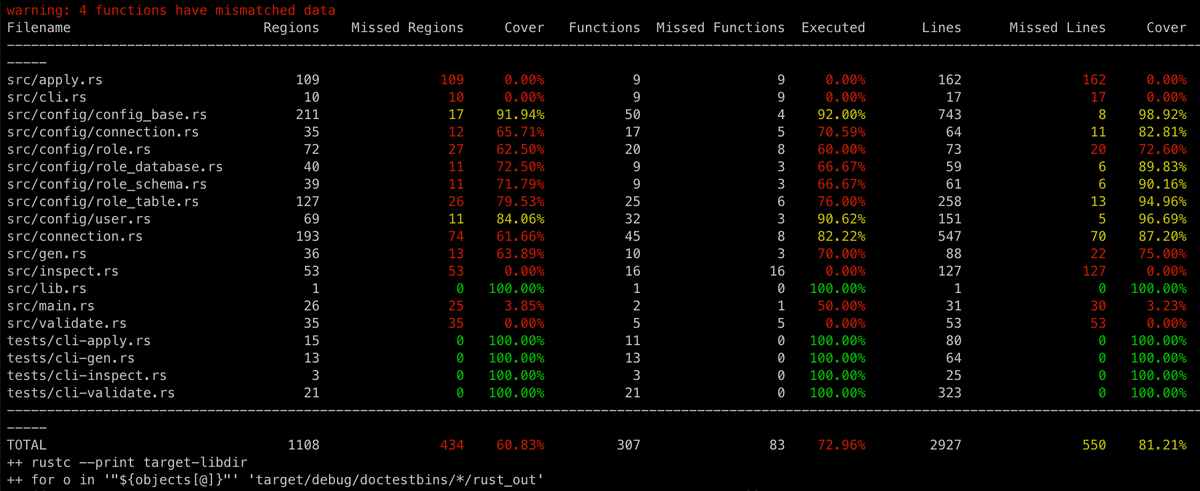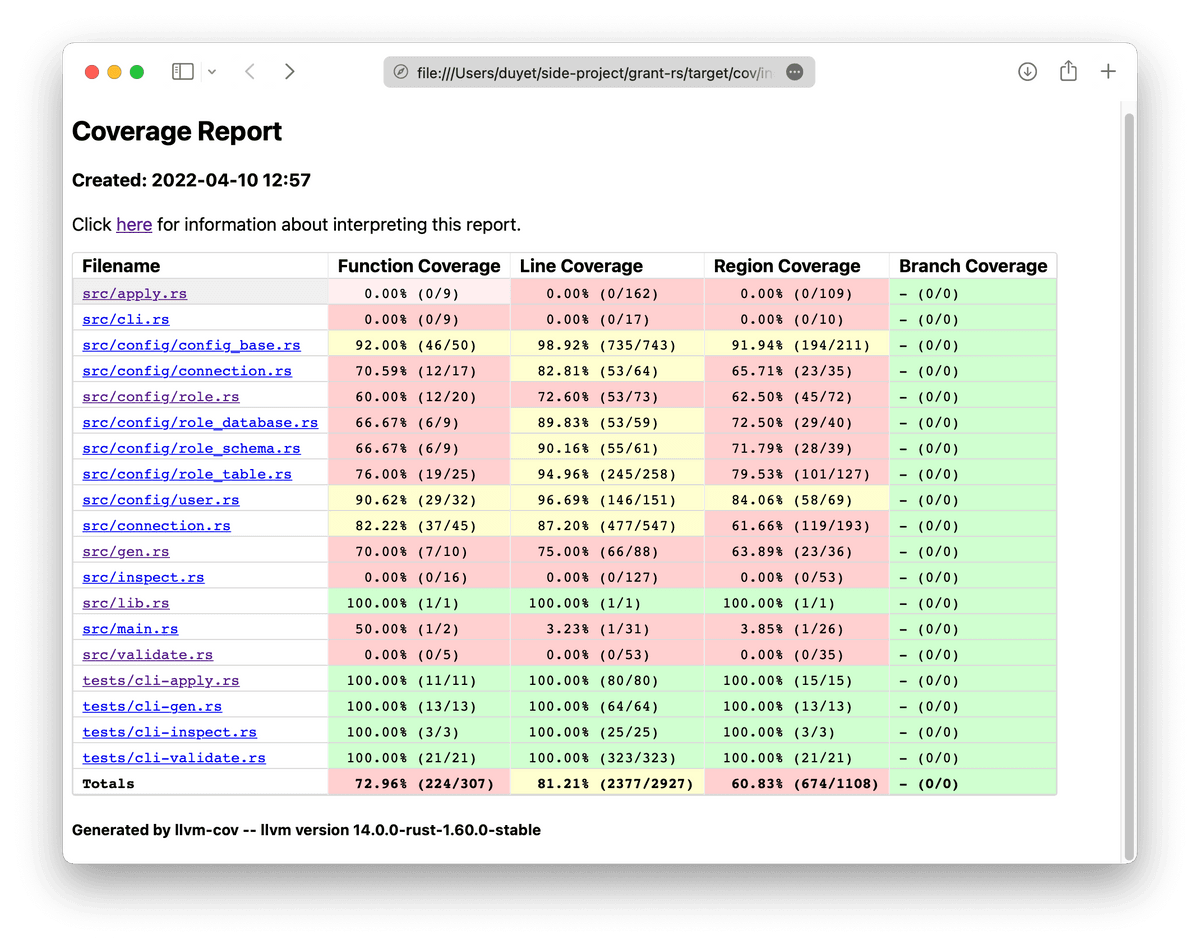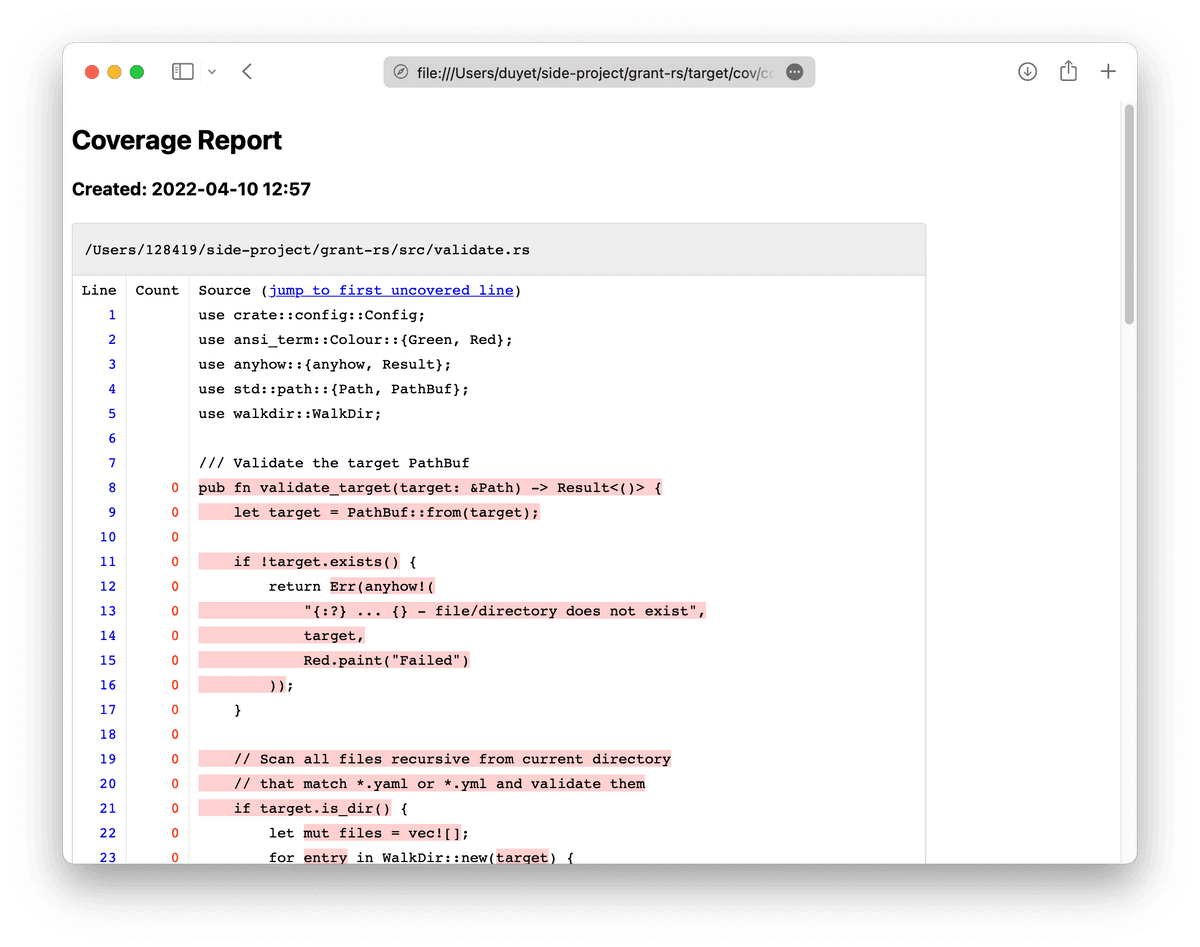Support for LLVM-based coverage instrumentation has been stabilized in Rust 1.60.0.
If you have a previous version of Rust installed via rustup, you can get 1.60.0 with:
rustup update stableTo get the code coverage report in Rust, you need to generate profiling data (1) and then use LLVM tools to process (2) and generate reports (3).
(1) You can try this out to generate profiling data on your code by rebuilding your code with -Cinstrument-coverage, for example like this:
RUSTFLAGS="-C instrument-coverage" cargo build$ ll *.prof*
default.profrawWhich will produce a default.profraw in the current directory,
if you have many binary or multiple projects, the file will be overwritten,
so please read the document here
to modify the output file name by using environment variables.
For example:
LLVM_PROFILE_FILE="profile-%p-%m.profraw" \
RUSTFLAGS="-C instrument-coverage" cargo buildFor (2), the llvm-tools-preview component includes llvm-profdata for processing
and merging raw profile output (coverage region execution counts)
rustup component add llvm-tools-preview
$(rustc --print target-libdir)/../bin/llvm-profdata \
merge -sparse default.profraw -o default.profdata$ ll *.prof*
default.profdata default.profrawAnd also llvm-cov in the llvm-tools-preview component for report generation (3),
llvm-cov combines the processed output, from llvm-profdata, and the binary itself,
because the binary embeds a mapping from counters to actual source code regions:
$(rustc --print target-libdir)/../bin/llvm-cov \
show -Xdemangler=rustfilt target/debug/coverage-testing \
-instr-profile=default.profdata \
-show-line-counts-or-regions \
-show-instantiationsThe annotated report will be like this:
1| 1|fn main() {
2| 1| println!("Hello, world!");
3| 1|}All in one script for code coverage
Here is the script that constructs all the steps above, used by my most projects https://github.com/duyet/cov-rs
bash <(curl -s https://raw.githubusercontent.com/duyet/cov-rs/master/cov.sh)The script will install the necessary crates, run the unit test to generate profraw,
merge into profdata then render the report in terminal and HTML. It also supports workspace,
able to comment
the report to Github pull requests as well.



